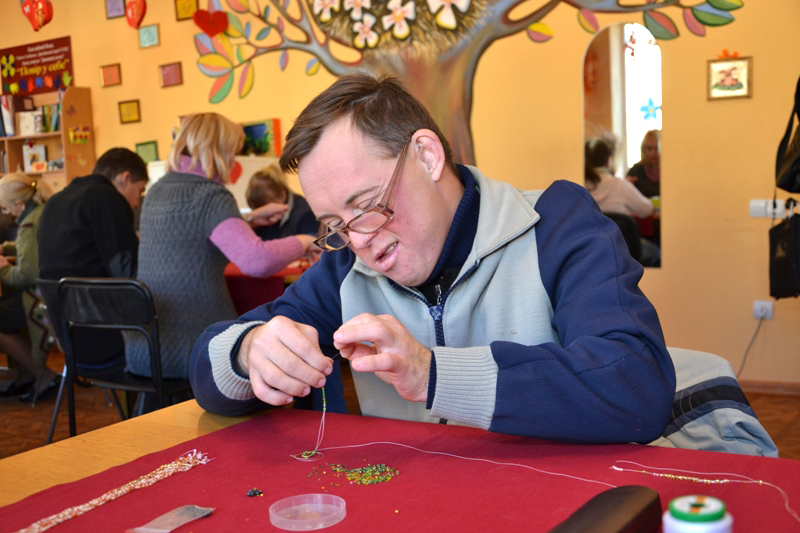
25.04.12
In our country, the number of disabled individuals grows every year. As of today nearly 10% of Ukraine’s total population consists of disabled individuals, of them 6% are mentally challenged.
Starting on 1 April, thanks to financial support obtained from Caritas Spain, the project Network of Social Integration Centres for Disabled Youngsters in Ukraine was started. This project continues the work started by a similar project called Network of Social Rehabilitation Centres for the Disabled in Ukraine which functioned from 2008 to 2012 at Caritas Centres in Drohobych, Striy, L’viv, and Ivano-Frankivs’k.
We spoke to Lyudmyla Sukharyeva, National Coordinator of Work with the Disabled for Caritas Ukraine about how Caritas helps the disabled.
-What is the goal of the project? How does it differ from the work Caritas did over the past 4 years? 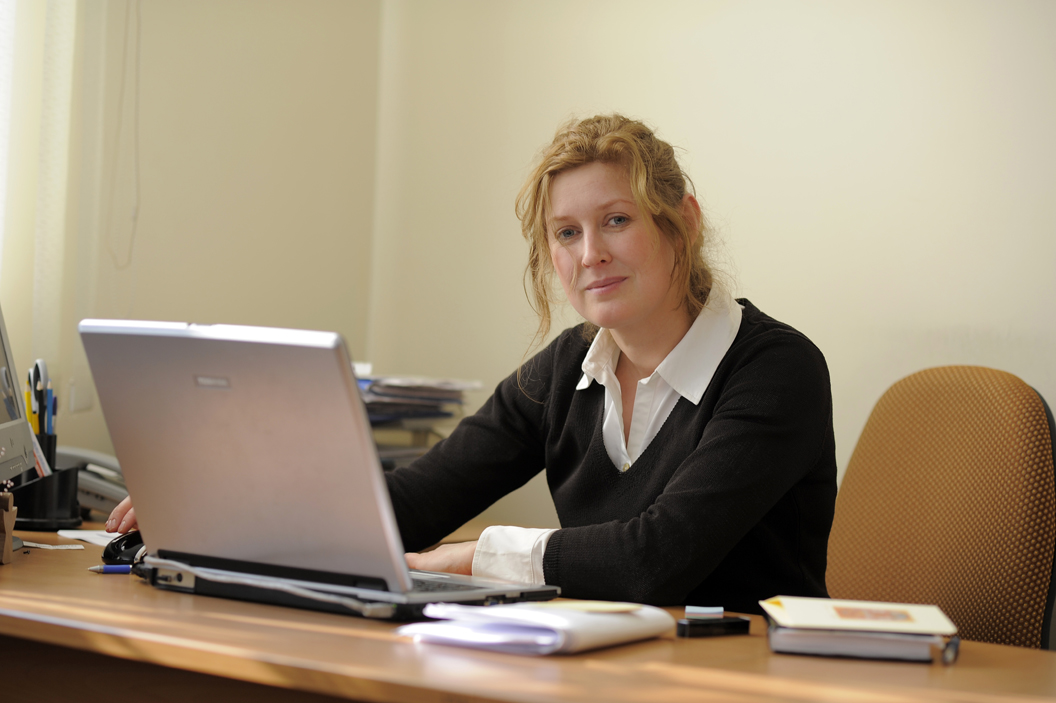
This project plans on developing a network of centres that integrate disabled individuals into mainstream society. It is no secret that in Ukraine disabled individuals are hidden from society and that their numbers aren’t publicized; Ukrainian society simply tries to ignore them. This project hopes to teach the disabled work and social skills so that they can better adapt to living in mainstream society.
Young disabled people also are given the chance to visit historic sites, participate in various events and festivals and meet with their peers from other branches and towns—that is, they get to live.
Parents of the disabled are also able to participate in events, trips and camps held at the centres and can obtain psychological support and information during meetings and seminars.
The project will evaluate the skills of its clients, create step by step instructions on how to complete tasks, try out new jobs for their clients, and create a physical recreation program. The project will be monitored continually in order to 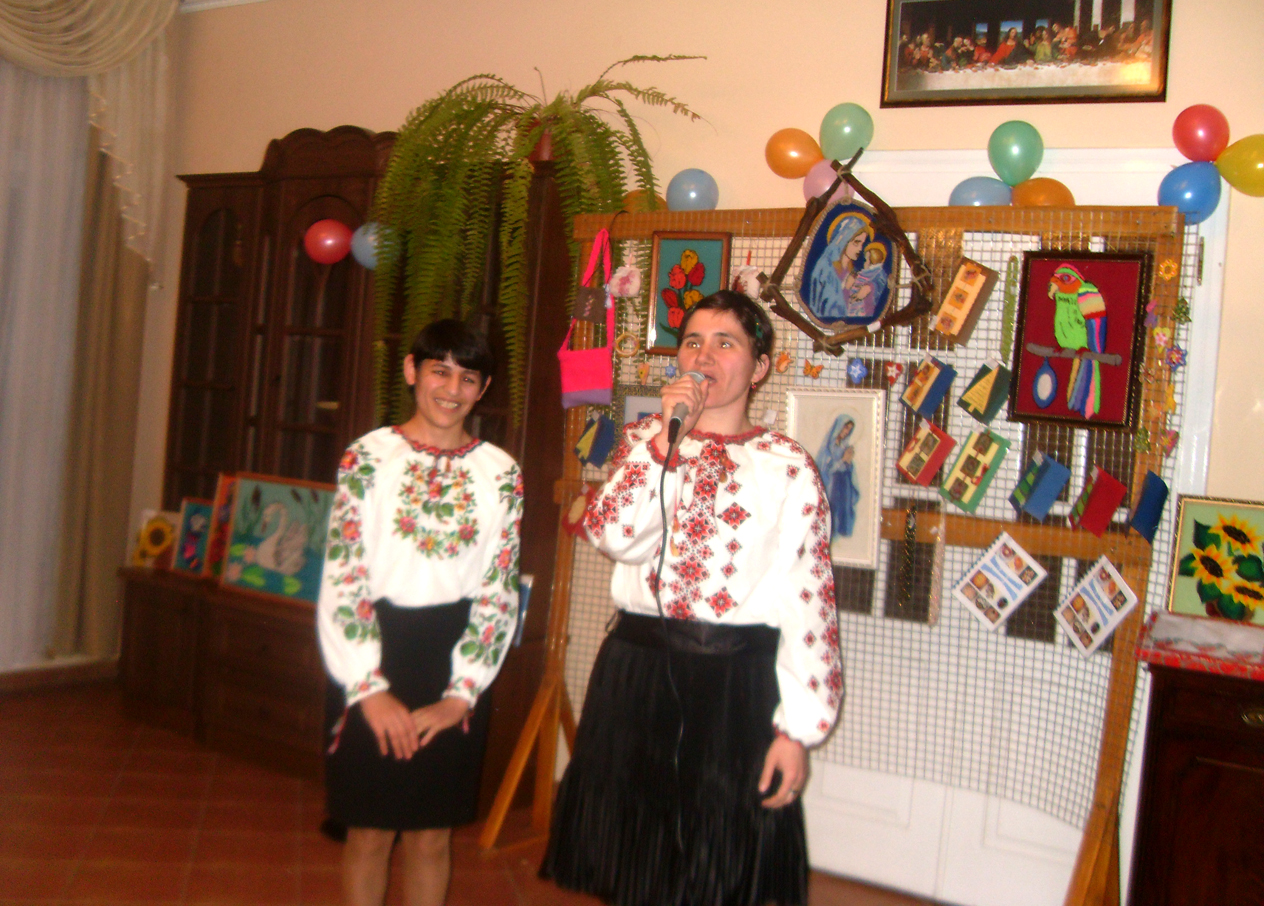 evaluate the outcome of our activity.
evaluate the outcome of our activity.
-How many disabled individuals does the project serve?
Currently 104 individuals are served by this project. Among them are 20 young orphans who live at the Ivano-Frankivs’k Geriatric Centre. If we count parents and other family members, the project serves nearly 250-300 individuals.
-How do you choose clients? Does the system get abused?
While we learned about the issues that the disabled in Ukraine face and about the government programs offered we visited psychiatric-neurological orphanages and geriatric centres. After our assessment Caritas Ukraine decided to offer rehabilitative services to people with mental disabilities who are over the age of 18. At 18 individuals are officially designated as Invalids and can be committed to a state institution or be isolated at home. They have no other options, because there are no rehabilitation programs for them in this society.
Our centres also serve young people who completed specialized orphanages and cannot find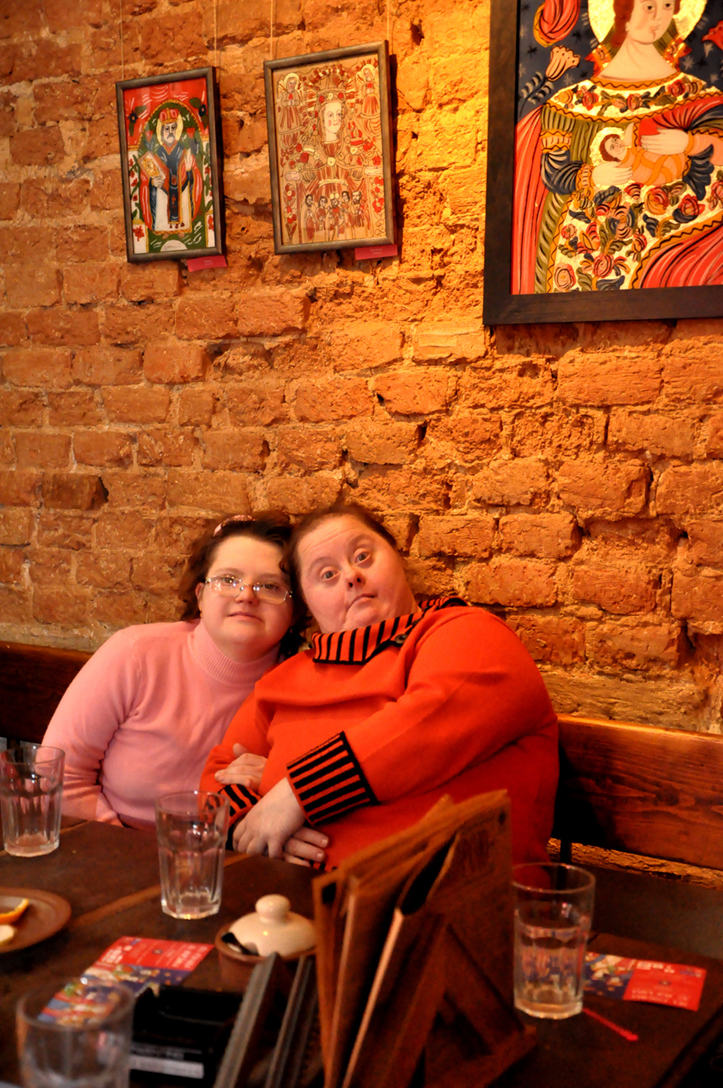 work in their specialty.
work in their specialty.
Many people want to be accepted into the Caritas program, and it is impossible to include everyone because of financial constraints, lack of space and limited amount of tools in the workshops. Working with the disabled requires a lot of time and energy, complete dedication and appropriate activities. Caritas prefers to do this task well, and for this reason we must limit the number of clients we serve.
-Does the project anticipate new Caritas branches for the disabled?
There is a great demand for new centres, especially in rural Ukraine. But currently we don’t have the funding to open new centres and maintain and develop the centres that are already in existence.
-Who works with the disabled? Are there enough volunteers?
Professional social workers, pedagogues, and psychologists work with the disabled. We encourage our staff to take continuing education courses.
The project has also made some important steps in getting educational establishments to cooperate. The establishments teach clients practical social skills and give students the opportunity to gain valuable volunteer experience. Local residents, such as seminarians, students and volunteers, also work with the disabled. Many of them have been active Caritas supporters for years and have helped organize events such as pilgrimages, holidays, informational events, etc. 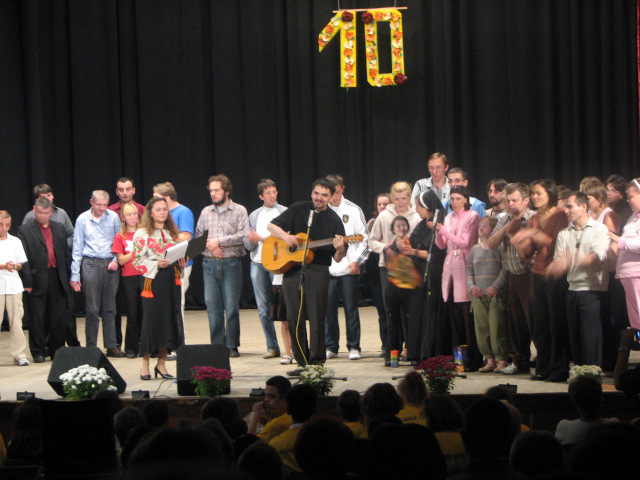 -Does Caritas create jobs for the disabled or help them obtain educational degrees? What is the situation with the disabled in terms of work and education?
-Does Caritas create jobs for the disabled or help them obtain educational degrees? What is the situation with the disabled in terms of work and education?
Sure, obviously some disabled individuals are refused work and an opportunity to obtain an education. For this reason Caritas tries to create jobs where the disabled can learn skills and be employed.
The first step in this process is to evaluate each individual’s skills and create step by step instructions for certain tasks. There are already 5 workshops at the Ivano-Frankivs’k Caritas. Workshops are being equipped at the other centres as well so that clients have the equipment and space to learn new skills. When all the workshops are operational, clients will work 3-4 hours on a regular schedule.
-Lyudmyla, does Caritas Ukraine lobby for the interests of the disabled? If so, how?
Lobbying is one of the project’s assignments. On the local level, staff members have established cooperation with government bodies. Some centres have been successful in getting their utilities covered; the Caritas L’viv centre has been receiving funding from the city budget for several years now. 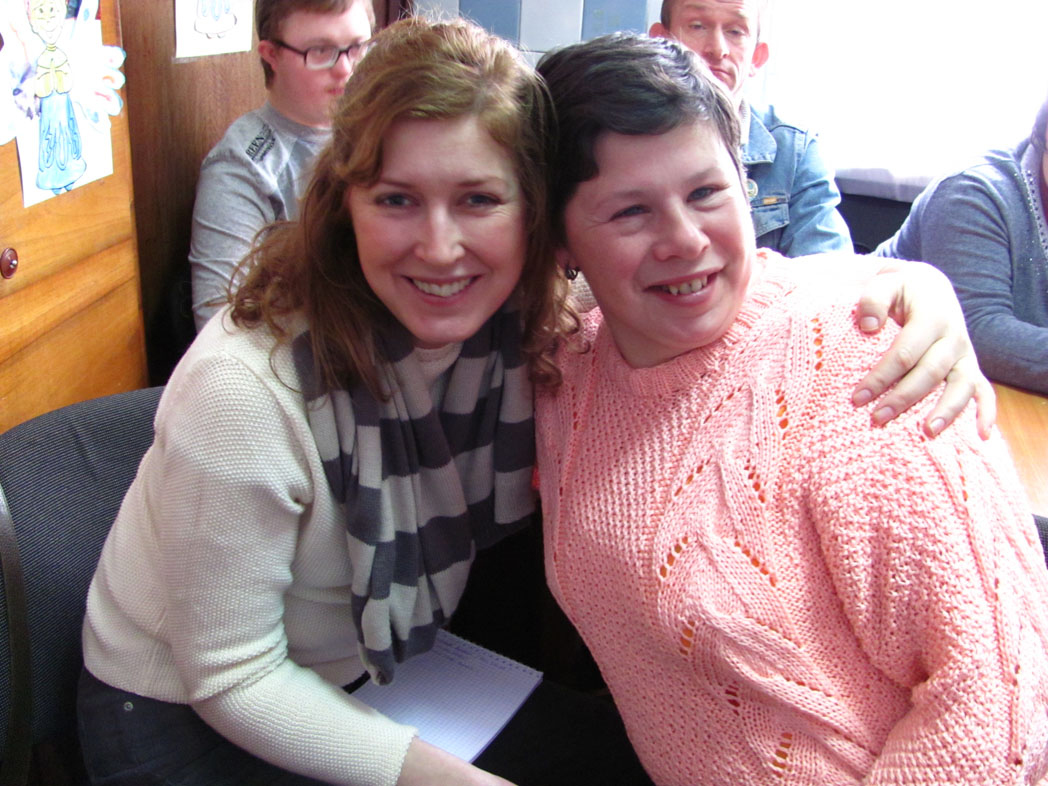
The clients of Caritas branches for the disabled take part in events organized by city centres for families and youth and by departments of social protection. They hold exhibits of handmade works and a series of other events which are aimed at publicizing the problems that the disabled face. Disabled clients also participate in various festivals, bazaars and holiday celebrations.
The National Coordinator of the project also is involved in meetings held by the nationwide organization Coalition to Protect the Rights of the Mentally and Physically Disabled. At these meetings individuals work with representatives from relevant Ministries and Departments to come up with proposals on how to change current legislation. There are many other meetings, agreements and discussions. Close cooperation is maintained with partner organizations and groups and there is a continuous search for sponsors. All this is done to better understand the needs and lives of the disabled and to improve Ukraine’s attitude towards this segment of society.
Tags:

